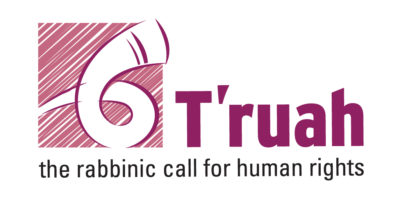“A cry is heard in Ramah— Wailing, bitter weeping— Rachel weeping for her children. She refuses to be comforted for her children, who are gone.” (Jeremiah 31:15)
It’s impossible to believe that it has been a year.
Wasn’t it just yesterday that news began to seep in of a Hamas attack on southern Israel, of Israelis murdered by Hamas in their homes, on the road, at a music festival? Wasn’t it yesterday that we realized that hundreds of innocent children, parents, grandparents had been kidnapped, and slowly pieced together the magnitude of this tragedy?
How can it be that 12 months later the situation is so dire? How can it be that over 100 hostages remain in Gaza, while their families desperately plea with the Israeli government to prioritize their lives? Just today, we learned of the death of Idan Shtivi, now known to have been killed at the Nova festival, with his body held in Gaza.
As Israelis and Jews across the world have struggled to process the trauma of October 7, the ring of suffering has only expanded — the war that has followed has left Gaza in ruins, over 40,000 Palestinians killed and hundreds of thousands left homeless.
Since October 8, Hezbollah, which has made no secret of its desire to wipe out the State of Israel has lobbed thousands of rockets into Israel, sending Israelis running to bomb shelters, and injuring and killing dozens of Israelis, including children. Just last week, Iran shot nearly 200 ballistic missiles into Israel.
And as Israel has stepped up its operation in Lebanon to assassinate Hezbollah leaders and destroy military infrastructure, thousands of Lebanese, who have already suffered for decades as a result of Hezbollah’s power in their country, have been killed and hundreds of thousands displaced. Nearly a dozen young Israeli soldiers have already been killed in Lebanon, adding to the more than 700 total killed since October 7.
Closer to home, too many of us have experienced antisemitic hatred. Too many of our synagogues and other institutions have been targeted with threats and violence. Too many of us have heard people we once considered friends, colleagues, and partners dismiss the very humanity of Israeli Jews.
And even closer to home, many of our families have been torn apart by arguments over the war. Parents and children struggle to understand one another. And some members of our community wonder whether there is still space for them and their questions within our Jewish communities.
There is just so much pain and suffering.
“God will hide me in God’s shrine, safe from peril; God will shelter me beyond the reach of disaster.”
Psalm 27, recited during this season, pleads with God for shelter from the evil, the pain, and the suffering of the world. God, as the liturgy of the High Holidays reminds us over and over, exemplifies righteousness, lovingkindness, and mercy. We pray to live in a world characterized by these attributes, and not by hatred and cruelty.
In my visits to the region over the course of this past year, I have heard one theme over and over again from people who lost loved ones on October 7, from Israelis whose kibbutzim were destroyed, from hostage families, and from the incredible, unstoppable Israelis and Palestinians who still work together for a better future: We refuse to let anyone take away our moral core. We won’t let this change us.
We won’t let this change us.
In the face of a world where hatred and cruelty seem to flourish more and more every day, our values and our commitments have not changed and will not change.
We will keep working together with those who care about the human rights of Palestinians and Israelis, using whatever levers of power we have to push for a negotiated ceasefire and an end to this war — so that the hostages can be freed, the killing stops, and Gazans can begin to rebuild. We won’t stop until there is a diplomatic solution to the conflict that protects the collective and individual rights of all people between the river and the sea.
We won’t let this change us.
For T’ruah, this has meant organizing rabbis and cantors, as well as the wider North American Jewish community. Thousands of members of our community have signed letters to the Israeli government as well as the Biden administration, urging Netanyahu’s government to make a ceasefire deal with Hamas that would free the hostages and end the war. When Netanyahu spoke in Congress and at the UN, we took to the streets to send a message that we reject his leadership, violence, and zero-sum thinking. We’ve brought groups of rabbis and cantors to meet with their Congresspeople and make it clear that American Jews want this war to end. Over and over, we’ve loudly rejected the binary that one must be either pro-Israeli or pro-Palestinian.
We won’t let this change us.
Today, we continue that commitment with our October 7 gathering: One Year Later: Communal Mourning and Action. RSVP here to join us. We will be together with Rabbis Shira Stutman, Kelly Whitehead, Sharon Brous, Rachel Barenblat, Avigayil Halpern, Lizzi Heydemann, and Ken Chasen to spend time in Torah study, prayer, and song, before taking action together toward ending the war.
We can’t know what the coming year will bring. But we do know what we are bringing to the coming year: indestructible commitment to the values of human dignity and human life.
Wishing you a gemar chatima tova. May all of us, and all Israelis, Palestinians, and everyone in the region be sealed in the Book of Life.
Rabbi Jill Jacobs (she/her)
CEO, T’ruah

